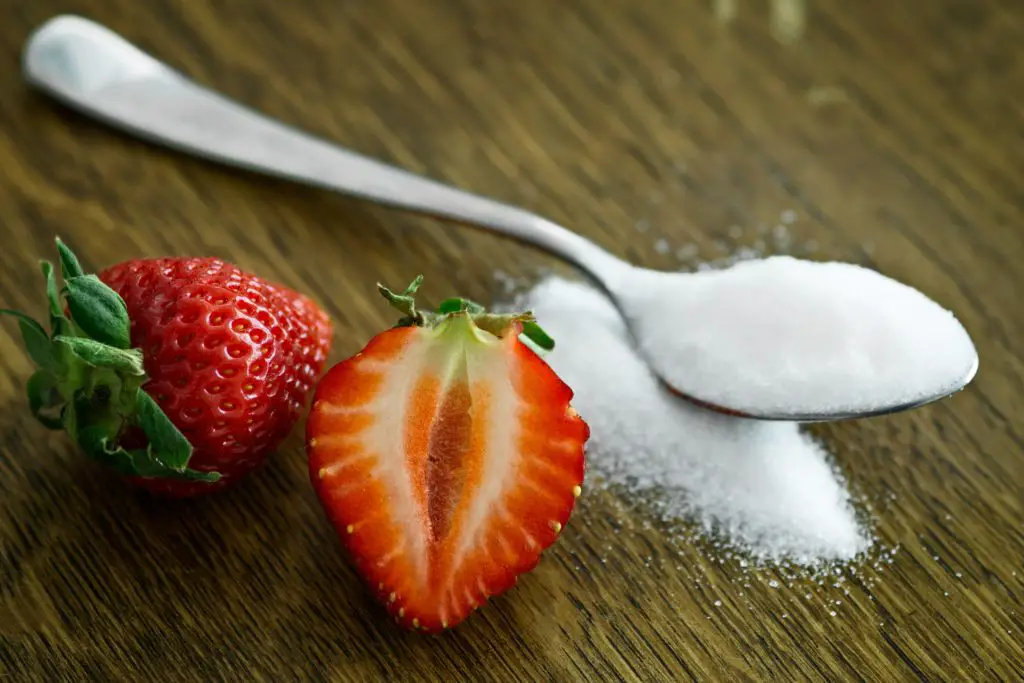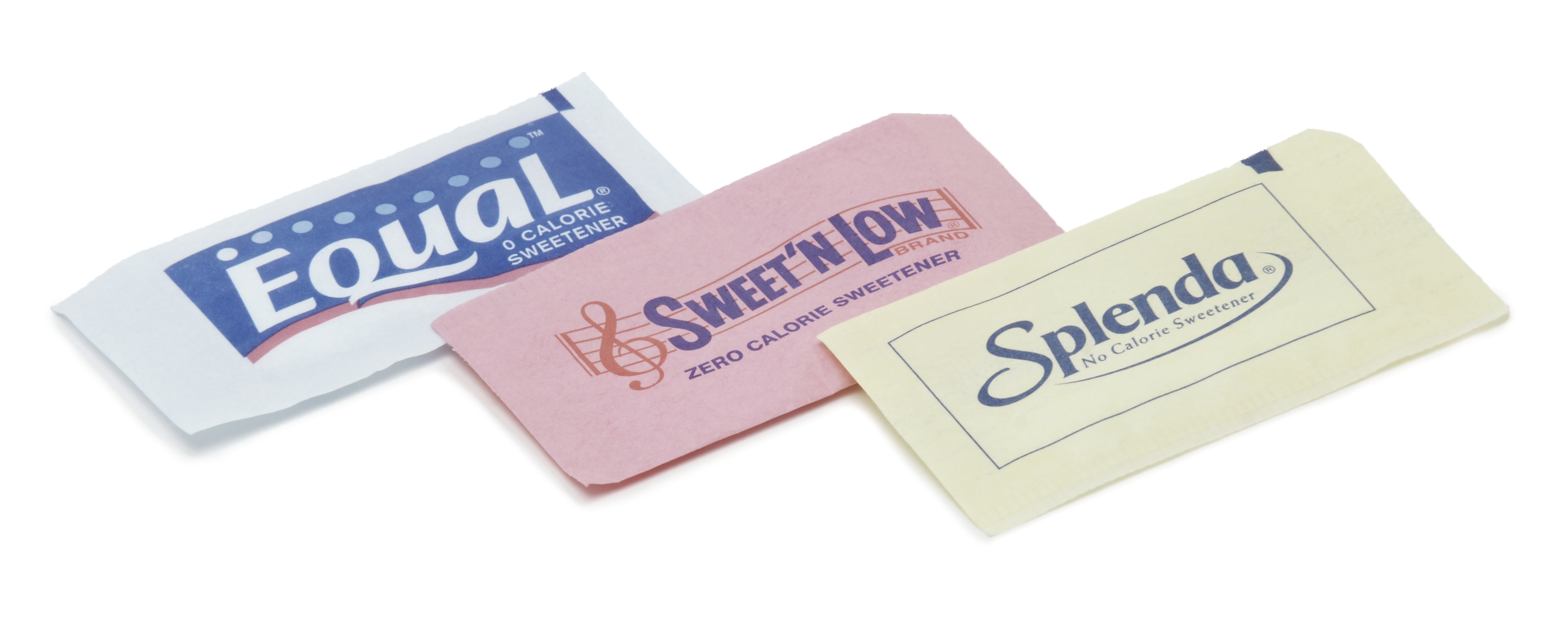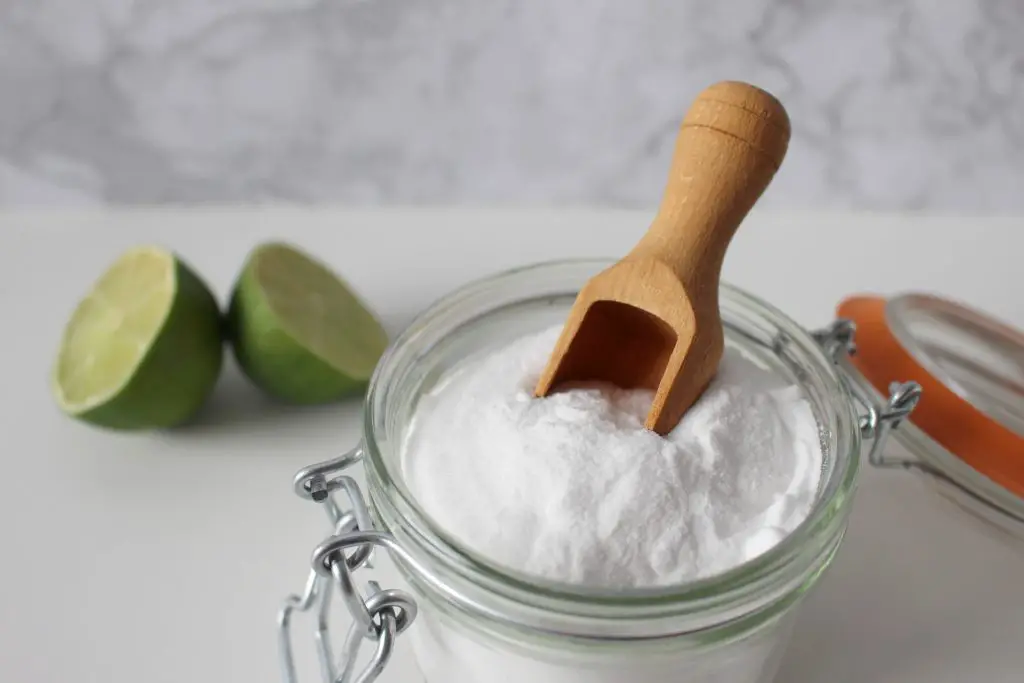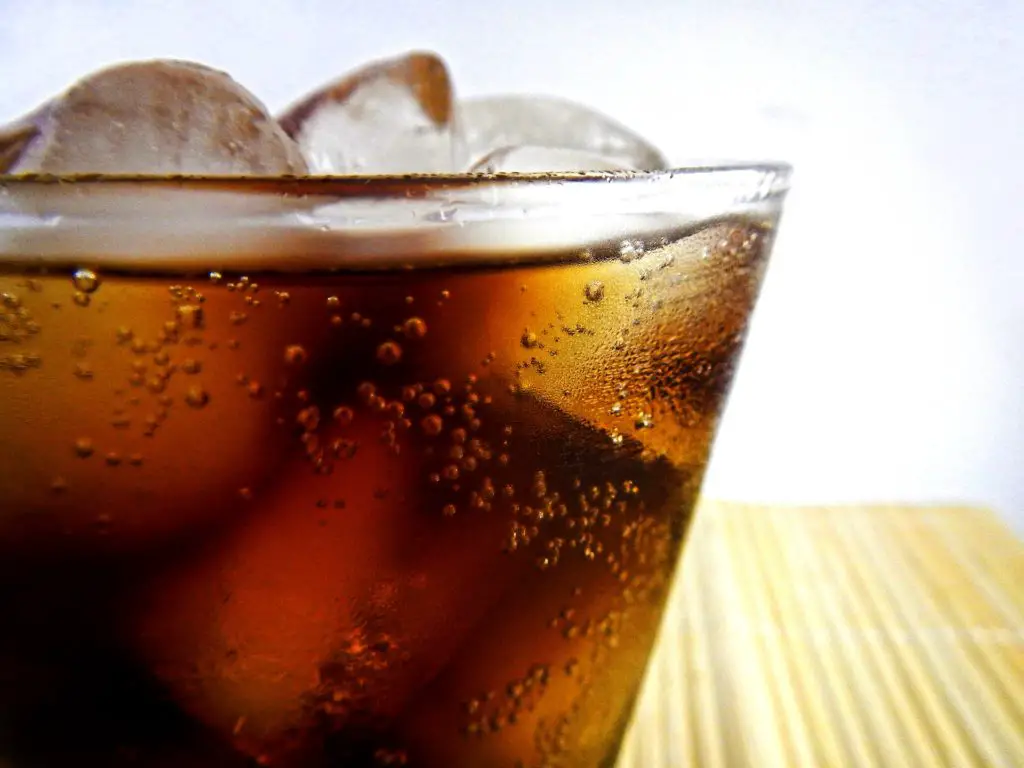
Parents of kids and teenagers should be informed and involved in what they choose to feed their kids. With so many sugary foods and obesity rates increasing, the trend for “sugar-free” foods is also increasing, but is that a good thing?
U.S. FDA recommendations for artificial sweeteners suggest that they are safe, in correct quantities, and even recommended at times. I try my best to keep up on current research about artificial sweeteners, and results are mixed.
As a mom, and as a registered dietitian, I believe we will be changing our minds in 5-10 years as more research shows artificial sweeteners are not as beneficial as it may seem. But for now, they are on the GRAS list- generally recognized as safe.
Read on to learn about artificial sweeteners for your kids. What to know, what to avoid, and what foods to be aware of.
Choosing artificial sweeteners to reduce calories and sugar in your diet isn’t a bad choice, but be informed and be aware. Artificial sweeteners are found in a wide variety of food and beverages labeled as “sugar-free” or “diet”. They can be a good choice because they add virtually no calories to your diet, and only a small amount is needed to match the sweetness of sugar.

Common FDA-Approved Artificial Sweeteners and Sugar Substitutes:
| Type | Pros | Cons | Examples |
| Stevia | Natural sweetener from plants. 300 times sweeter than sugar, only small amounts are used. | Bitter aftertaste, more expensive, may cause nausea, bloating, and upset stomach. | Stevia sodas, candies, teas, chewing gum |
| Sucralose (Splenda) | 600 times sweeter than sugar, with very few calories. | Recent studies have raised health concerns. | Chick-fil-A Diet lemonade (and many other sugar-free drinks like Gatorade Zero) |
| Aspartame (Nutrasweet, Equal) | It is 200 times sweeter than sugar | Not safe for people with PKU. May cause negative health effects in children. | Also in many diet sodas like Diet Coke, Fanta Zero, Fresca, Dr. Pepper, also in chewing gum |
| Acesulfame Potassium | Has a bitter aftertaste. Research states that it is mostly safe, but may contribute to weight gain in mice. More research is needed in humans. | Also many diet sodas like Sprite Zero | |
| Saccharin (Sweet ‘N Low) | Commonly used. Zero calories. Can be 700 times sweeter than sugar. | FDA worried about the safety of saccharin in 1970s after links to cancer in laboratory rats, however recent human studies support the safety. | Chewing gum, “lite” canned fruit |
| Neotame (Nutrasweet) | 7000 times sweeter than sugar | Dairy products, puddings, frozen desserts, drinks | |
| Advantame | 20,000 times sweeter than sugar | Bubblegum, flavored drinks, jams | |
| Sugar alcohols (sorbitol, mannitol, xylitol, etc.) | Fewer calories than sugar, but still provides a sweet taste. | Not sweetener than sugar. Provides calories and slightly raises blood sugar. May cause laxative effect and cause bloating, intestinal gas, cramping, diarrhea. | Hard candies, mints, toothpaste, chewing gum, many granola bars and protein bars |
Potential Benefits of Artificial Sweeteners
- Will not contribute to cavities or tooth decay
- May help with weight control
- May help with blood sugar control, especially for diabetics
Is Artificial Sweetener Bad for Kids?
Possible negative consequences include:
- Poor gut health, which is related to weight gain, poor blood sugar control, weakened immune system, and poor sleep
- Potential for higher BMI (more research is needed to make a direct connection between weight and artificial sweetener consumption)
- May increase risk of cancer (more research is needed in humans)
- Some individuals may be more sensitive than others to certain types of artificial sweeteners, which could result in headaches, bloating, cramps, nausea, diarrhea.
- Individuals with IBS (Irritable Bowel Syndrome) often have flare up symptoms after consuming artificial sweeteners
- Possible increased risk of developing diabetes
- Link between changes in appetite and sweet taste preference
Thought to have no impact, recent studies suggest that artificial sweeteners affect metabolism in some way that isn’t completely understood yet. Current studies of artificial sweeteners are concerning, although many results have been studied in mice. It should still make us cautious as to what we are putting into our bodies.
Artificial sweeteners are mainly found in highly processed foods, which are not very nutrient-rich and healthy for children and teens. They are found in “treat” foods. You don’t want your kids being used to all their foods being sweetened, even flavored water.
Kids should be eating more real foods, and fewer fake foods with artificial additives, flavors, colors, and chemicals, including artificial sweeteners. As a mom, my gut tells me that artificial sweeteners aren’t good for kids. Kids need less sweet foods anyway. When I choose to serve treats or candy (which is not very often), I choose real sugar and not artificial ingredients.
Current Artificial Sweetener Recommendations for Kids and Teenagers:
Expert opinions are mixed, but with a wide range of research, the FDA-approved artificial sweeteners are safe for children when consumed in safe amounts.
The Academy of Nutrition and Dietetics‘ position on artificial sweeteners for kids is that “consumers can safely enjoy a range of nutritive sweeteners and non-nutritive sweeteners when consumed within an eating plan that is guided by current federal nutrition recommendations”
Karen Ansel, MS, RDN, CDN, says, “If your child is eating the occasional artificially sweetened food you have nothing to worry about. But, before you stock your fridge with artificially sweetened foods and drinks, remember that many of these — such as sugar-free ice cream and fruit flavored drinks — aren’t always the most nutritious choices and can still fill kids up with empty calories.”
Overall, do your best to offer a variety of different foods for your child, so they won’t have as strong of a sweet taste preference. Offer a wide variety of fruits for kids to satisfy their sweet cravings. Add berries and other fruits to yogurt and cereals, make homemade trail mix, and use sliced fruit on toast or peanut butter sandwiches.
Artificial sweeteners are safe for kids when consumed in small amounts, periodically. They may be beneficially for a diabetic child or teenager. Talk to your pediatrician with any questions you may have about feeding artificial sweeteners to your child.

Are Artificial Sweeteners Worse than Sugar?
The American Heart Association recommends children should consume less than 25 grams of sugar per day, or about 6 teaspoons of sugar. With so many sugar sweetened products, most kids (and even young toddlers) are getting at least 12 teaspoons of sugar a day.
Parents may turn to artificial sweeteners to decrease their child’s consumption of sugar. Artificial sweeteners are much more intense and sweet than real sugar. Regular consumption may reduce sensitivity of sweetness, and continue to increase sweet taste preference in children. Kicking a sweet tooth can be tough, but can be possible as you switch to satisfying sweet cravings with fruits and other foods.
I choose sugar-sweetened foods rather than artificial sweeteners for myself and for my family. Artificial sweeteners aren’t necessarily “worse” than sugar, but they are another “artificial” ingredient that our children don’t need, and may contribute to poor health.
Examples of Foods That Contain Artificial Sweetener
It’s hard to know what products contain artificial sweeteners, because they don’t necessarily have to be listed on food labels. Look for the terms “reduced sugar” or “no sugar added” or “sugar-free” or “lite” or “diet” to get an idea of products that use sugar substitutes. You can also read through the ingredient list and look for “aspartame”, “sorbitol”, “stevia”, “acesulfame potassium”, “sucralose”, etc.
Here are some popular foods that contain artificial sweetener:
- Diet sodas (pretty much any type of diet soda)
- Powdered drink mixes (Powerade, Propel, Gatorade, “sugar-free” lemonade, hot chocolate mix, etc.)
- Baked goods like cookies, snack foods, cereal
- Hard candies, mints, and sugar-free gum
- Puddings
- Canned fruits
- Flavored oatmeal packets
- Snack bars, granola bars, protein bars
- Sugar-free and low-calorie juices
- Jams, jellies
- Popcorn
- Yogurt, sugar-free ice cream, other dairy products
- You can some types of artificial sweeteners for home use like canning and baking

What Drinks Contain Artificial Sweeteners?
Almost any type of diet soda, sugar-free drink, or lite beverage contains artificial sweetener, or a mixture of sugar and artificial sweetener. Examples include Gatorade Zero, Diet Coke, hot chocolate mixes, Propel, sugar-free lemonades, flavored waters, plus many juices.
Many sodas, juices, and other beverages and flavored waters contain artificial sweeteners. Parents think juices are healthy, but children and teens typically don’t need any juice. Whole fruits are best, with liquids coming from milk and water.
If you’re using artificial sweeteners in moderation to get rid of your sweet tooth, then great. If you’re using them as an excuse to keep eating many sweet foods, then it is not going to be helpful.
What is the Healthiest Artificial Sweetener?
Almost all the approved artificial sweeteners have some possible negative side effects, and none seem to have tremendous benefits over the others. Stevia is a recent favorite due to the fact that it isn’t exactly an “artificial” sweetener, because it is more natural and comes from a plant.
If you want to switch to more natural sweeteners instead, try fruit juices and nectars, honey, molasses, and maple syrup in baking and in favorite foods.
Whatever types of natural and artificial sweeteners you choose to use, use in moderation and balance with a healthy diet.
See also:
Is Whey Protein Safe for Teenage Athletes?
Is it Safe for Teens to be Dairy-Free?
The BEST Pre-workout Meals and Snacks for a Teenage Athlete
How Much Should a 16-Year-Old Teen Eat?
Free Meal Plan for High School Football Athletes
References:
Fueling Teens is a participant in the Amazon Services LLC Associates Program, an affiliate advertising program designed to provide a means for sites to earn advertising fees by advertising and linking to Amazon.com. We also participate in other affiliate programs which compensate us for referring traffic.
